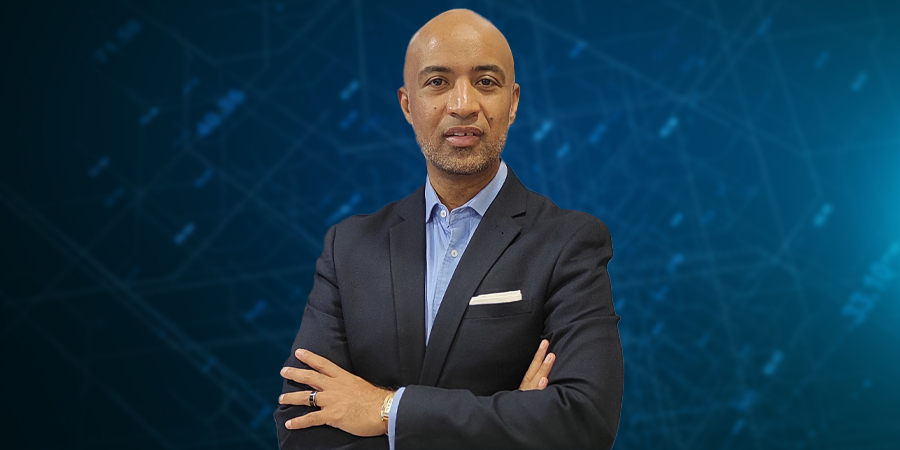On the sidelines of AfricaCom 2022, Telecom Review Africa was able to conduct an exclusive one-on-one interview with Ericsson’s Head of Sustainability and Corporate Responsibility — Middle East and Africa, Ayub Osman, to discuss the company’s focus and actions in regards to furthering sustainability and becoming carbon neutral.
As Head of Sustainability and Corporate Responsibility for Middle East and Africa, what are the action plans Ericsson is implementing in the region regarding this matter?
Sustainability and responsible business practices are fundamental to Ericsson’s strategy and culture. With sustainability being central to Ericsson’s purpose, we are committed to conducting business responsibly and delivering solutions for climate action.
The long-term ambition for our own operations is reflected in the target of becoming carbon neutral in 2030. As we show in our 2020 Sustainability Report, we are well on track to achieving this. In 2020, we achieved a 57% reduction in absolute terms compared to a 2016 baseline and have already surpassed our target for 2022, which was 35%.
We believe sustainability is critical to our long-term business success. We want to create value for the future, and we are convinced that long-term success will drive value for all our stakeholders — from our customers and employees to our partners and shareholders.
From your expert’s viewpoint, how can business and society contribute to increased climate resilience, adaptation and mitigation?
Climate action will rely on technology, innovation and cross-industry collaboration. With global collaboration and digital innovation, we believe ICT solutions can enable a reduction of global carbon emissions by up to 15% by 2030.
In particular, the ICT sector has the unique potential to enable other industrial sectors to move towards a low-carbon economy. Technologies such as 5G, AI, and IoT are being utilized today as essential drivers of decarbonization. At Ericsson, we believe we are a critical piece and have a responsibility to play in helping sub-Saharan Africa achieve its climate change targets.
For service providers specifically, we are helping them to break the energy curve by developing innovative solutions that will enable them to meet current and future network demands while simultaneously addressing the energy and carbon emissions challenge. By innovating our intelligent RAN energy-saving software features, for example, we are already helping operators to significantly reduce energy consumption. We have also committed to developing a 5G product portfolio that is ten times more energy efficient (per transferred data) than the current 4G portfolio.
Moreover, minimizing waste is key to a circular economy. We know that high reuse and recycling rates start with smart product design. Businesses should look for opportunities to adopt this philosophy in their operations and seek partners who also uphold these values. At Ericsson, we are working actively to address this troubling e-waste trend and are helping others to do so. We use a life-cycle approach to product design to ensure that we address environmental aspects, including responsible materials selection and effective resource use. At the end of product life, we offer our customers a complete take-back service that includes secure data destruction.
Through our Product Take-Back (PTB) management program, we work with our customers to recycle waste electrical and electronic equipment in accordance with the law and high environmental standards. We have decommissioned equipment at no cost to over 40 customers, covering 28 countries across Africa. Approximately 8,271 tons of waste electronic and electrical equipment were taken back from January 2012 to August 2022, of which approximately 98% was successfully recycled.
How important is your presence here at AfricaCom 2022, and what added value are you bringing to the show?
Information and communications technology plays an essential role in Africa’s digitalization journey and economic sustainability. We have seen this firsthand, as Ericsson has been connecting Africa for over 100 years and has built the wireless networks for every generation — from the early 1G networks to the first advanced 5G networks. AfricaCom 2022 is therefore a key platform for us as we continue to work closely with our partners across the continent to pursue endless opportunities via limitless connectivity.
The ramifications and severity of climate change vary greatly depending on where you live. Even though sub-Saharan Africa contributes only a fraction of global carbon emissions, it is bearing the brunt of the consequences. In Africa, climate-related problems include the current floods in Nigeria and droughts in Somalia, Ethiopia and Kenya.
Our commitment towards Africa is anchored in a desire to enhance the local ecosystem, enable sustainable growth, facilitate economic development and create opportunities for all. Visitors to AfricaCom will be able to see how Ericsson is harnessing the full value of connectivity, including 5G use case exhibits, immersive experiences and Green ICT initiatives. At AfricaCom, we also announced our renewed collaboration between Ericsson and the Whitaker Peace and Development Initiative (WPDI) and the expansion of our joint efforts to promote peace and development through education to youth peacemakers and Community Learning Centers (CLCs) in South Africa.







